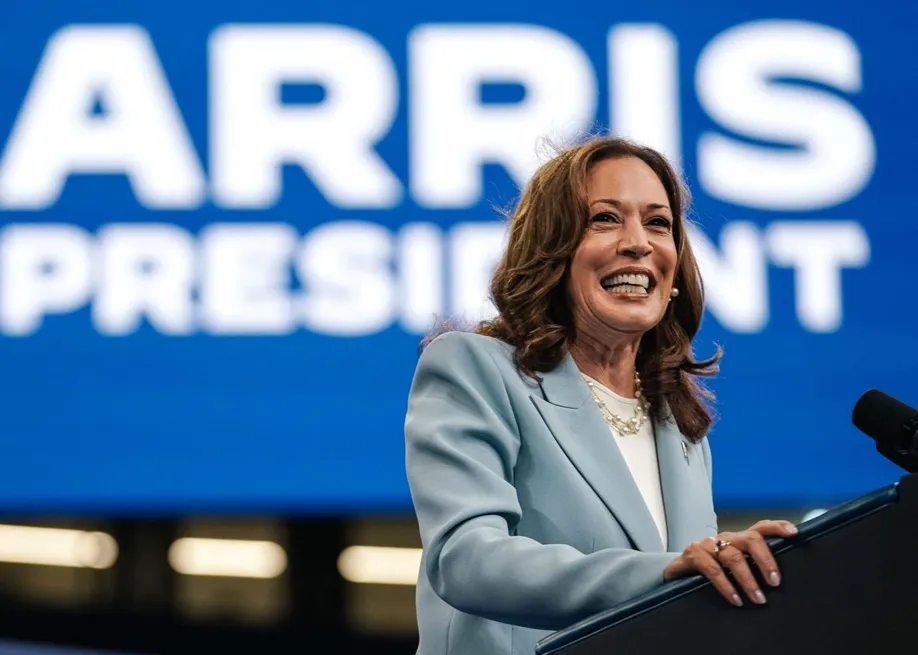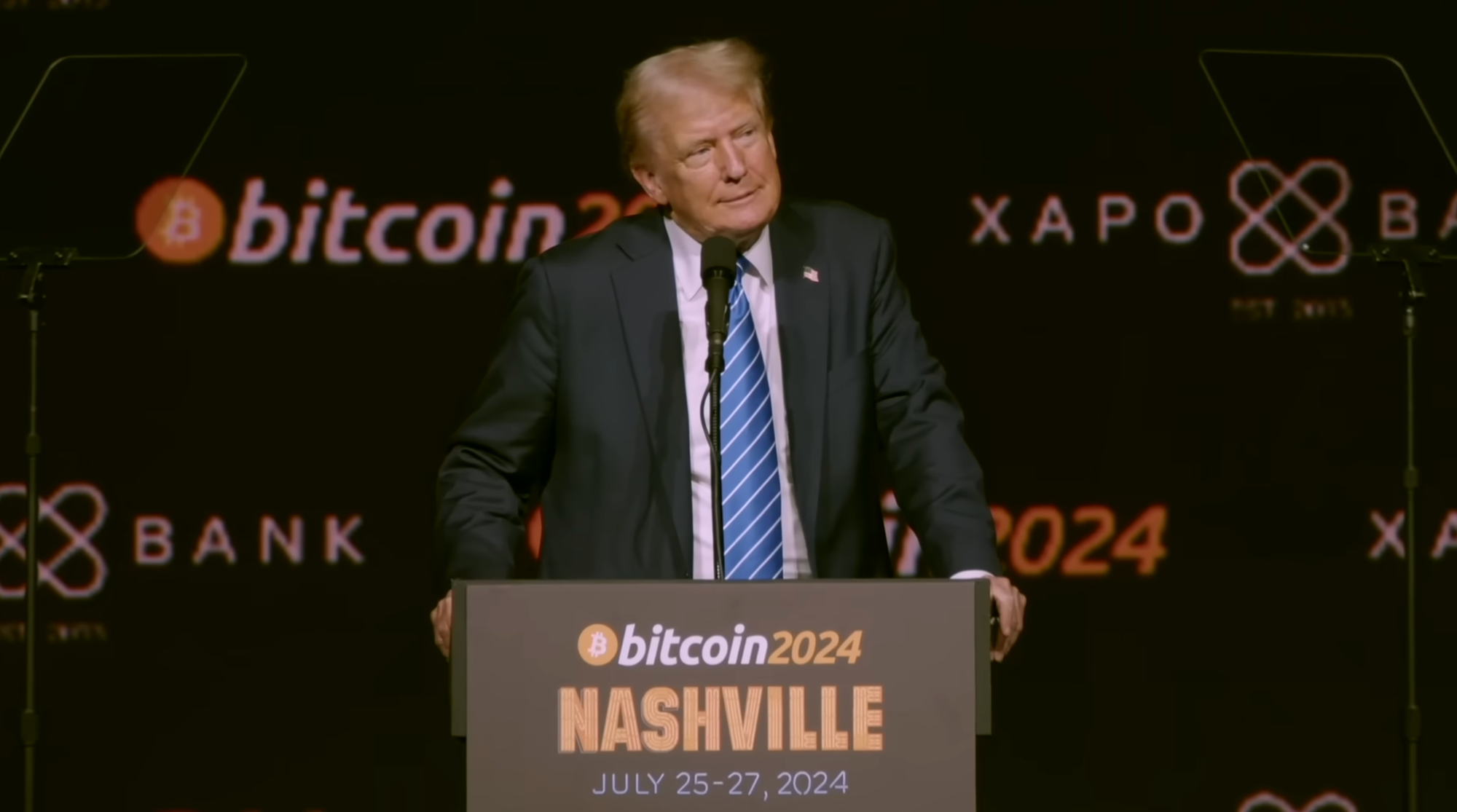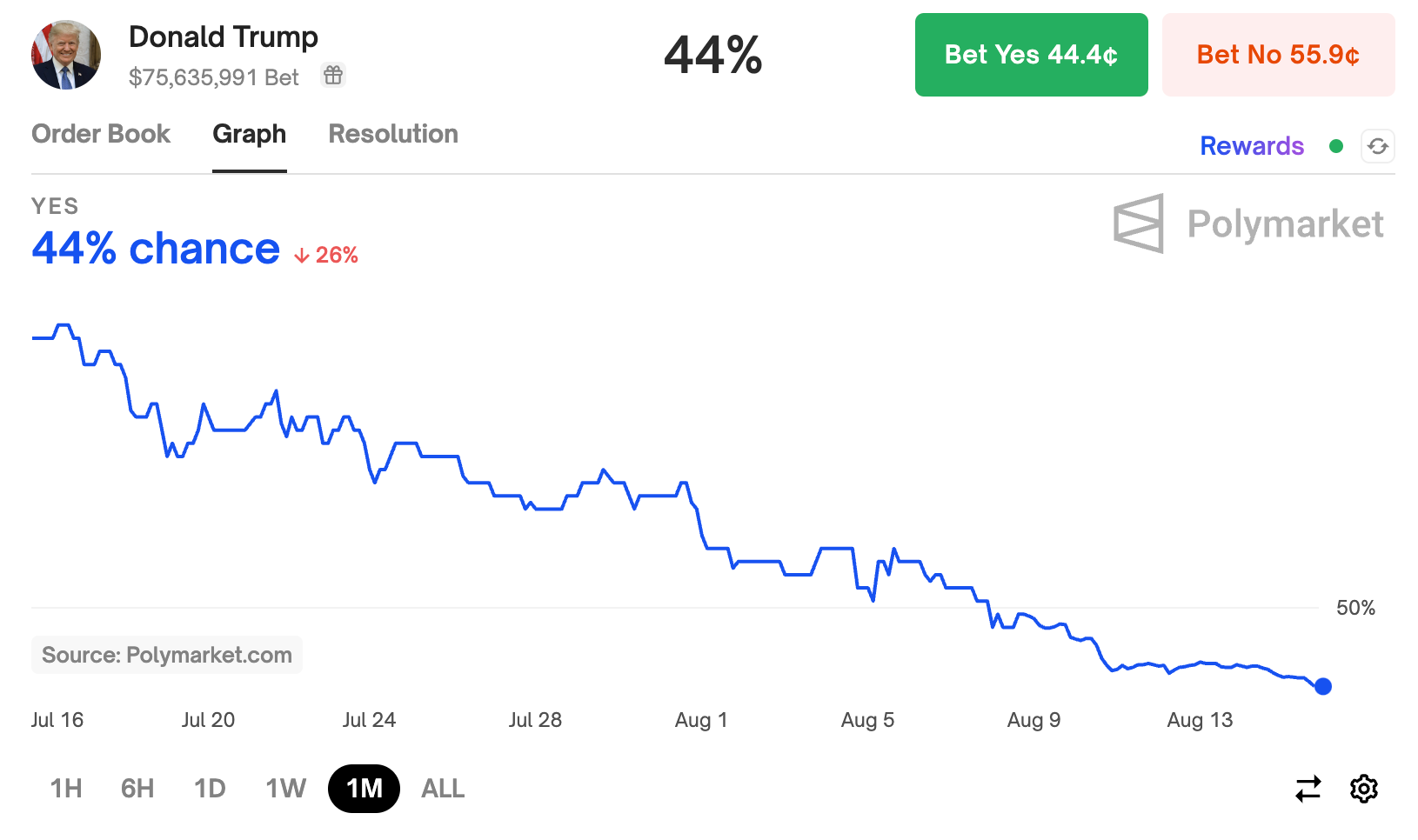
Seemingly from nowhere, crypto has become a hot-button topic of the dramatic 2024 presidential campaign.
So far, it's been Donald Trump who has led the charge—promising sensible regulations, and even saying he wants every single remaining Bitcoin to be mined in the U.S.
This, when coupled with an appearance at the Bitcoin 2024 conference in Nashville, has led to a flurry of industry heavyweights to throwing their support (and cash) behind the Republicans.

Over in Democratic circles, there's been little to no mention of crypto—somewhat understandably given Joe Biden's shock announcement that he wasn't running for re-election.
In some ways, this was welcome news for digital asset advocates given his administration had adopted a heavy-handed approach toward regulation.
But in Kamala Harris and her running mate Tim Walz, something of an information vacuum has emerged. The current vice president has never spoken publicly about crypto—while Governor Walz of Minnesota has a squeaky clean record that means he doesn't own a single stock or sat.
While there had been assumptions that their stance would be a continuation of current White House policy, we're starting to get signs that the opposite might be true.
Senate Majority Leader Chuck Schumer has appeared at a "Crypto for Harris" virtual town hall—rubbing shoulders with the likes of billionaire Mark Cuban—in which he promised that legislation that would give clearer rules of the road to digital asset firms would be a priority if Harris wins the keys to the Oval Office. He said:
"We cannot afford to continue to sit on the sidelines because then we risk crypto going overseas."
It's a clear acknowledgement of fears that the status quo is sending jobs and tax revenue to friendlier economies.
That's not all. Circle CEO Jeremy Allaire, who leads the company that issues the USDC stablecoin, has claimed "Harris folks" recently attended a meeting with executives from the crypto sector. He told CNBC:
"What I can say is there is a concerted effort both from the administration and the Harris campaign to really get to know the issues, the players, the industry, the policy issues."
Blue, Red or Purple? Here's Circle CEO Jeremy Allaire on the crypto community's stance on who will win the election and what it means for digital assets. pic.twitter.com/RtZSLSFli7
— Squawk Box (@SquawkCNBC) August 14, 2024
All of this is unlikely to change the views of deep-pocketed execs who have thrown their wholehearted support behind Donald Trump. Not only is it too little, too late, but the rhetoric hasn't been matched with a clear plan of how a new Democratic administration would tackle crypto.
But it could influence voters in swing states who describe crypto as a key issue for them at the ballot box, yet may be reluctant to back Trump because of his past controversies.
Further clarity from the Harris camp could even influence Bitcoin's price. Odds from the crypto betting site Polymarket show Donald Trump's chances of winning in November have crashed from 71% to 44% in the space of a month, and pessimism surrounding his prospects may have fed into the value of the world's biggest cryptocurrency of late.

Nonetheless, there are some who want Harris and the Democrats to steer well clear of crypto—irrespective of whether it's an opportunity to pick up a few donations or voters. Dennis Kelleher, president of the campaign group Better Markets, declared in a Financial Times op-ed:
"The crypto industry’s extensive lawbreaking rap sheet is at odds with Harris's long and strong record as a prosecutor who fights for consumer and investor protections and against financial industry lawbreaking ... Harris has a lot to do in the lead-up to the US elections. Caving to threats from the crypto industry should not be one of them."
